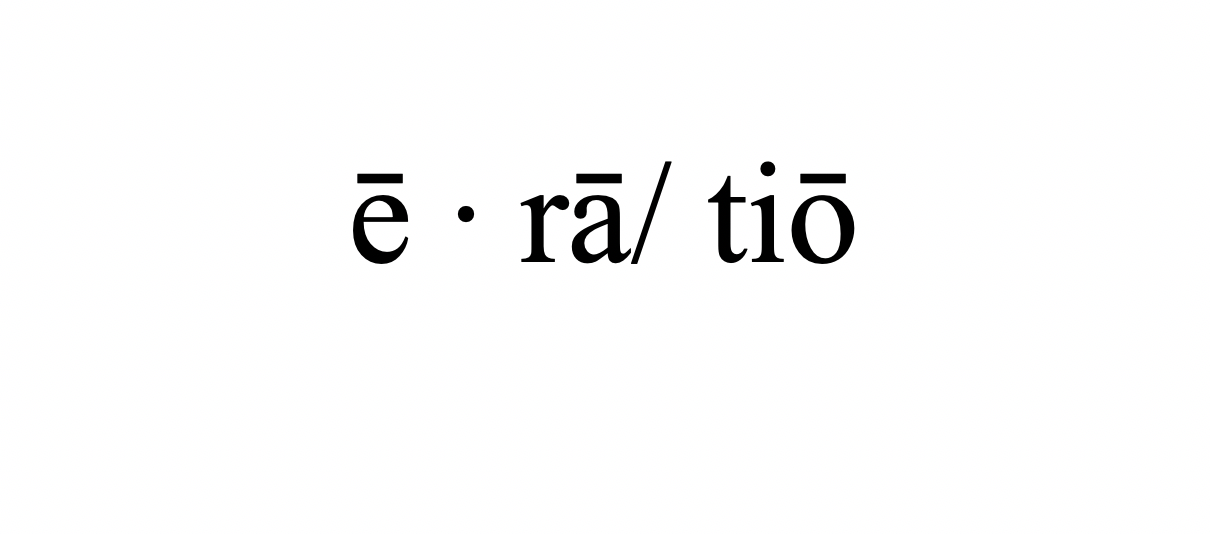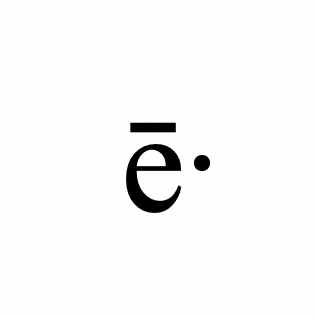from the collection Earlier
Rosanna E. Licari
Liminality
The new virus takes control and first responders set up beds in tents and stadiums — makeshift hospitals swarming with medicos scrambling for PPE and even raincoats because that’s all they’ve got. The infections and deaths are broadcast daily. As we withdraw into lockdown, quarantine and social distancing, there is fluidity at the margins. A gateway for the wild. Animals edge into the vacant spaces. Shoals of fish swim through clean Venetian canals, emptied of speedboats and cruise ships. Ducks have laid eggs at a vaperetto stop. Sika deer wander into Nara’s streets and subways. Goats from the headland run through Llandudno and give hedges an extra prune. A puma from the Andes explores the curfewed streets of Santiago. My species paces the pavement on approved morning and afternoon walks. Isolation brings a consciousness that notices tree bark and the neighbour’s flower beds. We observe insects and pollinators we cannot name. Distinguish the greens of the natural world. Prams, skateboards and pedestrians spill over streets, ignoring the road rules and the moving cars. The vehicles slow down, stop. Pasted on the back of a traffic sign, a lost bird notice: a galah is missing. Davy is microchipped with no leg ring. Perhaps in the animal ether he felt the spaces open. Glimpsed the spirits of squawking Cuban parrots, saw flashes of marauding sulphur-crested cockatoos. Then finding his cage door wide open, boldly and quickly, stepped out.
Lockdown
Don’t cringe when I say I miss the smell of chlorine at the public pool. I’ve been schooled in the dark arts of cleaning. My parents thoroughly promoted the benefits of handwashing, bleach and methylated spirits. Their lives filled with the European post-War diseases — tuberculosis, dictatorship and hunger. My time has come in a strange way. I have distanced myself socially since a child, so this is natural. There is plenty to do that doesn’t include others. Starting small, I tackle one room at a time then hone in on the intricacies of dusting and cleaning. Feather dusters, Superwipes, and clean rags fill my arsenal with the big guns of domesticity: the vacuum cleaner, the bucket and the mop. But, there’s time for distractions. A quick look in a wardrobe or jewellery box. Try on a forgotten piece infused with family memories. The coral necklace my mother gave me. A gift my father brought her from a trip to Florence. My tour of duty expands to the outer reaches of the house — the garage and the damp hollow under the kitchen that accommodates the side of the hill. I know now how my father felt when, after he’d shower, he’d say Don’t touch me. I’m clean. Hidden enemies are everywhere. People on their socially distanced walks become potential carriers. Any surface is a battleground. Home is the only demilitarised zone.
Jenolan Man, 1866
John Lucas finds himself among shadows
a cool draught on his face,
the earth, damp beneath his woollen suit.
He turns slowly onto his side,
towards the dim glow of a tallow candle.
He is in a cave.
Is it a new one?
He reaches into his waistcoat
drawing out the chain of his pocket watch.
No ticking. The arms as motionless
as the limbs of a stillborn child.
But he feels it again, like the first time
in the cavernous darkness,
the vast, monumental space
that can produce fear or awe,
depending on the man.
For Lucas it was always the latter.
The knowledge of his insignificance
in the face of the Creator’s work.
He left his mark when he ventured
into the caverns, autographing
the calcite walls, taking over
a hundred samples of God’s labour.
Standing, he expects to see the speleothems
as those in his study: clear, white and pink.
The light reveals nothing but broken
limestone columns, jagged drapery
hammered down and taken. No splendour
only the remnants of spars broken
into pieces among the gouged flowstone.
And there are names, many names
attesting to who, when and why people had come.
Divulging loves, hates, and the liquid crystal pools
full of broken glass, paper and garbage.
A searing pain begins behind his brow,
constricting thought into a ball of fire.
Shutting his eyes, he cries out as tears
stream down his face. Then his eyes open.
He is on the floor of his office,
his secretary kneeling beside him.
The doctor, Sir?
No. Get me some paper. I must write.
Note: The Jenolan Caves are in the lands of the Burra Burra people, a clan group of the Gundugurra Nation. John Lucas, Member for Canterbury NSW, began his campaign to protect the Jenolan Caves in 1866.
Feasts
Wings beat in quarter time
and the crush of leaves punctuates arrival.
Its floral display already captured
by the hunger of bees,
the mock orange now has new visitors
that eye off its small ripe fruit.
Bodies of grey and copper fur and
bone tracking into flat, leathery planes.
Winged reputations smeared with virus.
The morning driveway is splattered
with seed-infused mush.
Reddish, sticking like glue.
These leftovers, hosed and swept
into the garden, will shoot.
Under the sensor light,
their nocturnal calls fascinate.
A flying fox swoops so close
we could almost touch.
Landscape
for N
They hide under sleeves, jeans and skirts. These cuts sculpt strange terrains in your flesh. I shuffle in the loose stones at the foothills. I know nothing of this topography. The experts say it brings relief. Fights the rock-hard numbness, frees those buried concerns. You’ve told me nothing. And now a flood of pills scour your throat and settle in a dark, acidic pool, dissolving another bout of apprehension. This is another level, an uncertain place. A lightless valley, cold and bare. Is there a map? The experts say it’s not always an endgame. I don’t know what to say.
Exiles
Mother tells me
when it’s all over
after nothing can be done
and both their bones mingle
in the grains of sand
and the decaying kelp of
Watsons Bay.
For three years
my aunt’s and uncle’s ashes lay
in the crematorium’s pastel-coloured boxes
for the right time
to have the ceremony,
for all of us to come together
in the same place, and
from that place
cast them into water.
There were no crosses.
No markers
to show they fled a war-torn land,
died in another.
I wonder why she agreed
to such a senseless request.
Once more, Mother insists
this is what they wanted.
They asked who would visit their graves?
Executor
Again, I say too much as this is my habit. If only silence came so easily. You return my call when I am in the middle of something. (A trivial thing.) Of course, I can’t help, but tell you. We’re friends after all. I dwell on you being alone in your dead brother’s house. It’s left to you to deal with “the estate”. Sometimes you think you see his shadow. In the living room you’ve hidden one of his religious medals in a gap between the wall and the door frame. You believe St Christopher will bring blessings to the new house owner. You’re giving away your brother’s clothes. The cat that you brought down from Brisbane wanders around the bric-a-brac and furniture that filled his world. The furniture polish left with the wooden chairs. The TV has sold and so has the sound system. A radio connects you with the outside world as your portable TV won’t work there. Now you’ve sold his car. Got the price you wanted. The microwave has also gone. Cooking dinner on the old stove, using one hotplate, has made you realise how little you need. You managed to make a meal of chicken and vegetables in one pan. Something in your voice echoes the reflection of a hermit. Once, by the seaside, you ate takeaway pizza in the fading light. Shadows dropped on your locked car. These always carry colour. Under the orange street light, mine is aqua green. I remember a blast of light from a shining sea. I imagine you lighting a fire in the middle of the backyard. Being content with the simplest of lives, unpopulated by people and things. You brother wasn’t like this. Everyone in town knew him. Bowls, cards, committees. His spirit is everywhere.
Rosanna E. Licari has an Istrian-Italian background and is based in Brisbane, Australia. Her work has appeared in various journals and anthologies including ArLiJo (USA), Australian Poetry Journal, e·ratio (USA), Meniscus, Not Very Quiet 2017-2021 anthology, Poetry for the Planet: An Anthology of Imagined Futures, Pulped Fiction: anthology of microlit (Spineless Wonders, 2021), Quadrant, Scars: anthology of microlit (Spineless Wonders, 2020), Shearsman (UK), TEXT Journal, The Anthology of Australian Prose Poetry (MUP, 2020), and Transnational Literature (UK). She received the 2021 poetry prize from the American Association of Australasian Literary Studies, and she is the poetry editor of StylusLit. She teaches English to migrants and refugees in Brisbane, Australia.

